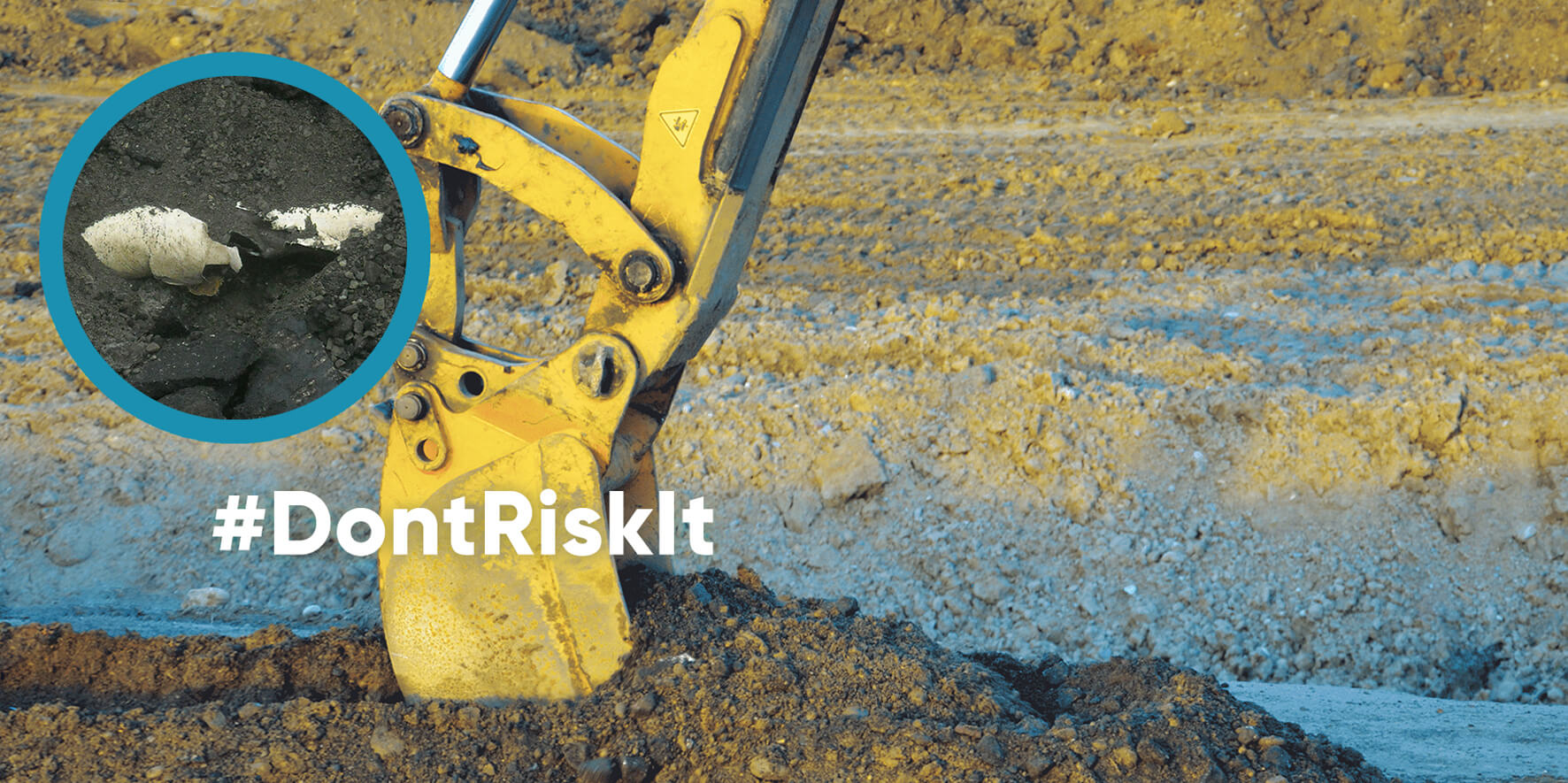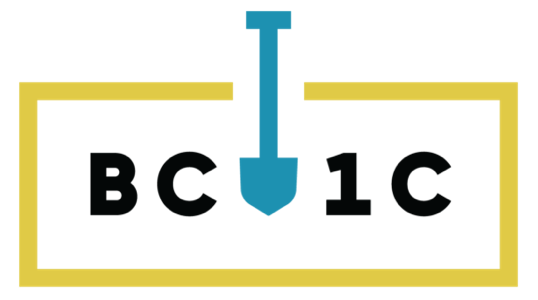
Each year in B.C., April is declared both Safe Digging Month and Construction Month. The declarations are made independently, but the connection is unmistakable.
The construction industry prioritizes worker and community safety. BC 1 Call and its 360 public and private sector underground infrastructure owning members are singularly focused on worker and community safety through the prevention of damage to underground infrastructure. In this way, our goals could not be more aligned.
Professionals use BC 1 Call before undertaking work related to a wide range of jobs involving ground disturbance, with a huge contingent of professional users working in commercial and industrial construction and homebuilding. Thousands of others work in roadbuilding, landscaping, public works, and facilitating the supply of telecommunications, oil & gas and energy.
All professional projects that involve ground disturbance are challenging given the need to stay on time and on budget – all while managing various risks.
It goes without saying: failing to anticipate and deal with risk factors can negatively impact your project’s timeline and profitability, which is why risk management is key to any successful project. And that’s what safe digging best practices are all about: decreasing or eliminating risks.
Increasingly, Excavators are Leveraging BC 1 Call
Clicking or calling BC 1 Call ahead of breaking ground is now a well-established safe digging best practice in B.C. Here’s the proof:
- 34 education/training partners now include the use of BC 1 Call in professional training courses, including regional construction associations.
- Job opportunities increasingly require a commitment to use BC 1 Call before disturbing the ground.
- An ever-increasing number of professional contractors are registered as BC 1 Call users, with 85% of over 1,200 BC 1 Call User Survey respondents saying they use BC 1 Call because it is a safe digging best practice and keeps their communities safe.
- More locate request tickets than ever are being submitted by professional contractors.
BC 1 Call Members require use of our service
It is a condition of BC 1 Call’s Member’s Agreement that the member require the use of BC 1 Call by employees and contractors. According to our 2022 Member Survey, 85% of BC 1 Call members could confirm they have such policies or procedures in place, with 89% stating that the use of BC 1 Call is important to their Damage Prevention Strategy.
Notably, many large utilities that have not yet become a BC 1 Call member also impose a similar requirement on their contractors and employees.
179% Growth in Registered Contractor Users (2020-2022)
| Year | January 1st Total | December 31st Total | New Users | Increase (%) |
| 2022 | 27,360 | 32,813 | 5,453 | 20% |
| 2021 | 20,249 | 27,360 | 7,111 | 35% |
| 2020 | 11,724 | 20,249 | 8,525 | 73% |
Growth continues apace. Already in 2023, total Contractor users have exceeded 34,000.
36% Growth in Locate Requests placed by Contractor Users (2018-2022)
| Year | Locate Requests | % of Total LR’s |
| 2022 | 153,948 | 66% |
| 2021 | 155,178 | 64% |
| 2020 | 132,282 | 62% |
| 2019 | 116,980 | 58% |
| 2018 | 113,293 | 57% |
Contractors not only place the majority of Locate Requests, but they are placing an ever-increasing percentage of the total. In 2022, Contractors placed 66% of all 2022 Locate Requests. This is a higher percentage than the combined percentage of all Locate Requests placed by Homeowner and Member Employee users. This makes the growth in Contractor Users – and their habitual use of BC 1 Call before breaking ground — particularly important in the quest to keep workers and communities safe.
We’d like to extend a special shoutout to professional excavators who click or call BC 1 Call before digging. Thank you for embracing this safe digging best practice!
Unnecessary Risks are still being taken
Despite significant increases in registered users of BC 1 Call and in the number of locate requests submitted, damage incidents are still high – and unnecessarily so.
According to the most recent Damage Incident Reporting Tool Report of the Canadian Common Ground Alliance (i.e. the 2021 DIRT Report):
- Too many of the reported damage incidents were caused by
- a failure to use BC 1 Call: 47%
- an excavation issue (including a failure to review and follow BC 1 Call members’ safe digging instructions): 39%
- Over 63% of all reported damages were caused in the course of undertaking three types of work:
- Water or Sewer Work: 25.5%
- Construction: 21.1%
- Landscaping: 16.8%
- 95% of all incidents involved a hit to either Natural Gas or Telecommunications infrastructure, both of which deliver critical services which our communities depend on.
- 85% related to gas line strikes alone, which carry an extremely high risk of personal injury.
Unfortunate Consequences
Professional excavators who fail to use BC 1 Call and follow our members’ instructions invite both repair costs and project delays. Repair invoices are generally over $5,000, with some bills exceeding $100,000.
In addition to repair costs, excavators can also face project delays based on WorkSafeBC stop work orders or repair work schedules, as well as reputational damage should a community service disruption make the local news.
We can all do better
Damage is a shared responsibility, and we all need to do our part. By some estimates, damage incidents in our communities could be reduced by ~90% if BC 1 Call was used consistently prior to breaking ground and member instructions were followed.
Call to Action: Join the BC 1 Call Community!
Get connected – even if you don’t actually place locate requests:
- If your role involves placing locate requests, register as a user, by completing a BC 1 Call user profile here.
- Be sure to sign up for BC 1 Call communications by checking the opt-in box in your user profile.
- If your role does not require you to have a user ID or submit locate requests, stay connected by subscribing to our communications here.
- Show you are part of the Safe Digging Community while on the road. Order your free BC 1 Call bumper stickers from communications@bc1c.ca. Don’t forget to replace existing bumper stickers bearing our old logo!
